Infertility manifesto – is there hope?
I’m a surrogacy researcher. I also have MRKH, and as much as I try to keep these two parts of my lives separate, there are moments when they converge. Milestones, conversations with participants that remind us of painful moments we ourselves have buried, friends becoming pregnant alongside the time we spend researching and contemplating the big questions, like – what makes a mother?
Rather than delve into why I am researching surrogacy, I want to explore how I approach infertility, and ways in which this attitude has seeped into other parts of my life. Hopefully some of this will resonate, and if it doesn’t, I hope that it triggers your own contemplation’s.
I turned 30 this year, and I was not expecting it! Cognitively, I was well aware, but let me explain something. When I was 17 and told I could not carry children due to the missing womb, I grieved for what I thought my future children would be. Did I want kids? I wasn’t sure, but in those moments it was like I was symbolically given them before they were snatched away. A dream that I could never have. I learnt how to bury this grief, although I was always respectful of it, but it went from being the size of a monster looming over me to the size of a postage stamp that constantly sat in my back pocket. It branded me, but I learnt how to define myself beyond the confines of the diagnosis that MRKH is. My life became busy with other things like study, relationships, learning to enjoy sex and not beat myself up for what my body couldn’t do, or give. But around the age of 30 I realised how many of my friends were having babies. It was like an explosion of baby bumps and it was a conversation I couldn’t enter, unless it was superficially. I had joy for others, but it too was contained. It was practiced. My relationship also ended at this stage in my life and so I felt like I was unexpectedly entering into a period of soul searching.
What is a mother? A woman that can conceive and carry her baby? Or one that devotes loves and cultivates a shared sense of being in the world through connections with another? This is a central theme I explore in my own work, and yet it permeated into my own life recently. The country I live in, there is little options to adopt. Surrogacy is actually often a quicker route despite the length of time it takes to find someone, to go through the processes. So whilst I wholeheartedly believe that a mother is not defined by what organs she has, or her ability to become pregnant with her own body – I do not want to take away from the fact that not having the choice to carry your own child is heart wrenching for many women, myself included. More so, I didn’t realise how much the possibility of a childless future would impact on me.
With this new realisation, I decided to look into fertility preservation options. In New Zealand these include stimulating the ovaries (or in my case ovary) with synthetic drugs, to produce more eggs which can be harvested in a medical clinic and then frozen either by themselves or with the sperm of their partner (or sperm donor). It is not cheap, costing 10,000 per
cycle. However with my eggs being at the best possible quality now, it is better to explore doing it as opposed to waiting. Seems straight forward enough right? Well the first step is having your GP give you a blood test form to get your AMH levels checked because AMH blood levels are thought to reflect the size of the remaining egg supply. I got this bit of paper but have yet to actually go and get these levels checked. It sits on the pile of paperwork on my desk and I look at it every day as I walk past, aware I want to know but also fearing that it won’t have good results. I’m not sure how ready I am to know if it’s bad news.
The thing is, the motivation behind not wanting to do the test reminds me of the hope hold in our hands sometimes, the precious and fragile piece of possibility for the future. Knowing induces wisdom and often peace eventually, but what does hope do exactly? Is it healthy? We do this for many parts of our lives. We meet someone new, and in those giddy moments where your soul finds theirs, hope springs forth in between the moments of laughter and joy. Hope is the desire that something will be possible, even if you know the risks involved. Because the greatest truth we know is that loving another has the possibility to hurt the most. So how can we sit with hope?
